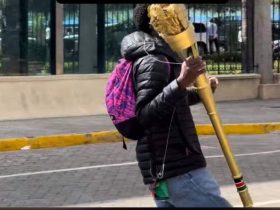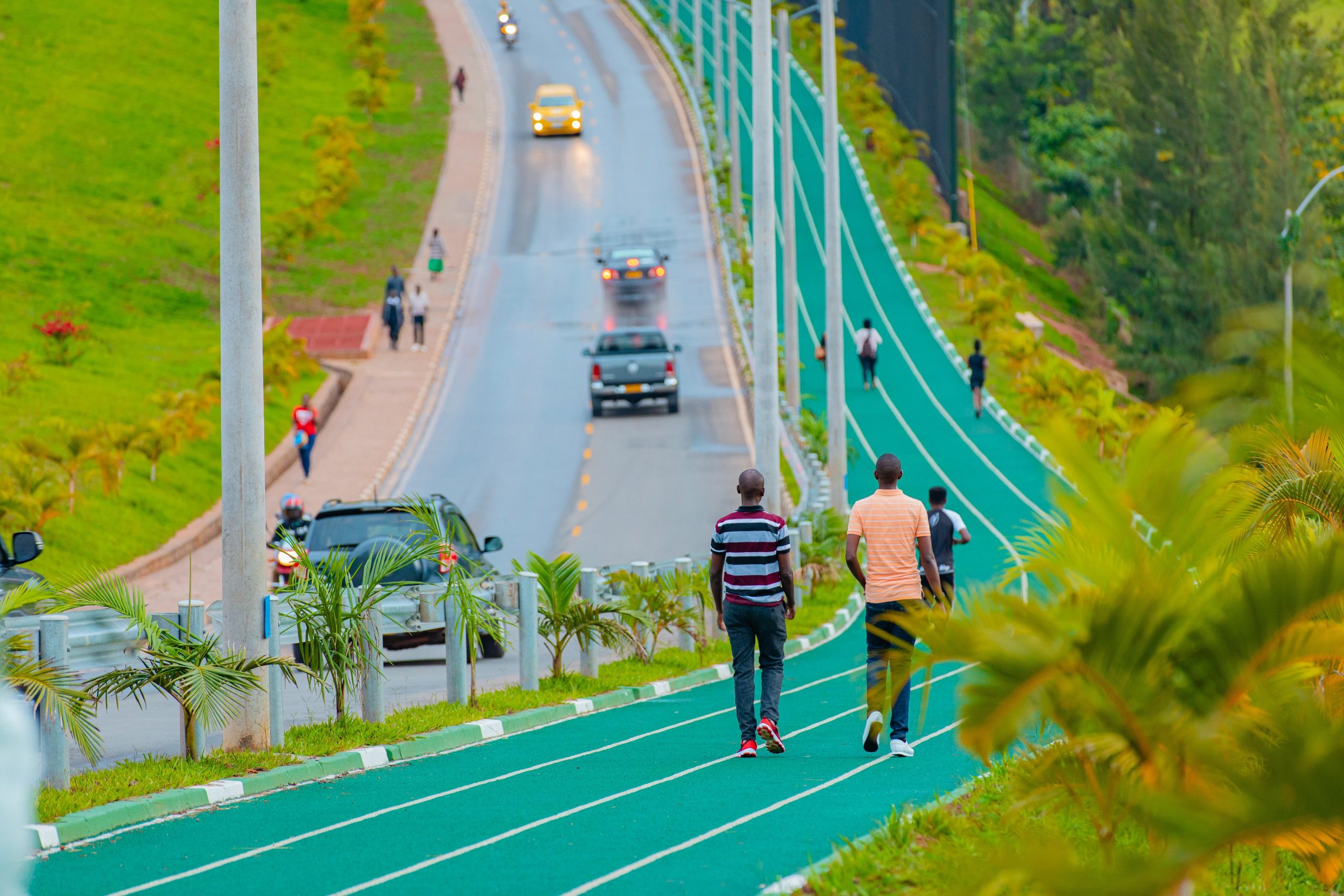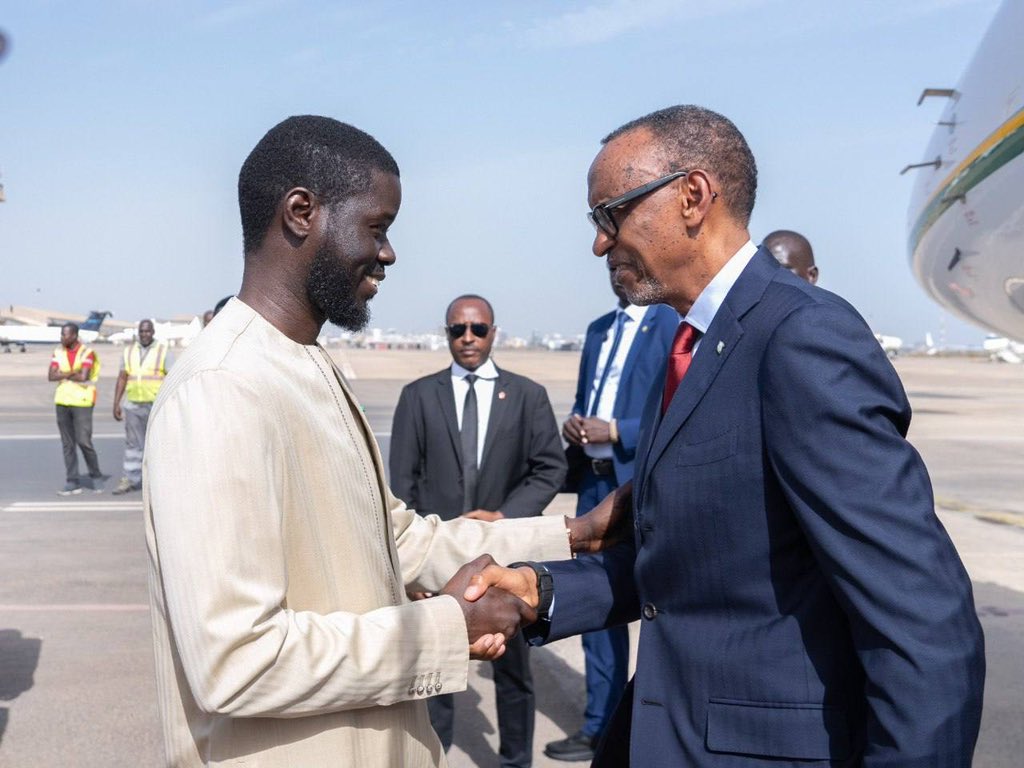La Prince elle dit…’ (The Prince says…) –Brazilian football legend Leonardo, now director of French club PSG, translating ‘the money language’ of its Qatari owner to journalists in broken French;
‘Mais il ne parle toujours pas français?’ (He still doesn’t speak French?), the journalists asked. ‘Si, mais pas a vous…’ (Yes he does, but not to you) –Leonardo finally says to the peasants and commoners with many questions and microphones; commonly known as journalists.
Same thing happened during the just concluded Umushyikirano (national dialogue). The President frequently delegated his responses to the Prime Minister and other ministers.
‘The President has said; sorry, the President has directed that…’, the Prime Minister, uncomfortably explaining the President’s responses to questions raised by the public. ‘I wanted him to own it, he refused’, said the president. But who could blame him? The man isn’t used to taking charge in the presence of the President…
Those few in the room saw that happening. Those on the radio however-the majority of Rwandans could have thought it was the Prime Minister’s initiative. When the president spoke, he spoke of love and compassion. He mentioned love twice. I do not remember the last time the president spoke of the Rwandan love, ever.
In his State of the Union address at New Year’s, he kept the speech to a minimum; something deep and memorable. Gone are the days of witty jabs at the French or Tanzanian governments; gone is the technocrat president announcing food self-sufficiency and policy reforms in the state of the Union. All that is gone, now we speak of Agaciro (Dignity), love and compassion.
Wearing a blazer with no tie, he remarked: ‘the changes you have proposed have merit and wisdom’ (gushyira mugaciro). I thought to myself: President Kagame may have just acceded to that ‘Grandeur’, of a founding father of the nation. One that leads from behind like the proverbial Rwandan cow herder, or simply a modern-day general; not at the front line, but in the situation room…
Observing his latest behavior, I am wondering if he may just not have initiated the proverbial ‘peaceful transfer of power’; or rather powers in this case they are multiple. ‘But I do not think our aim is to have a president for life’, he said, ‘nor is it what I would want.’ Letting young generations shine, fostering confidence and ownership into his lieutenants but also into the public, the one that couldn’t let him leave.
Rwanda’s recovery hasn’t been linear. Although it has been relentless and ascending, it has had it ups and downs. Looking back at the journey from the 1994 Tutsi genocide to today however, one can only sigh with satisfaction, feeling that with the little resources that we had, the challenges that we faced, we have done what we could.
Many say that Rwanda’s democracy is 21 years old. Fine. If that’s what floats their boat; we have a 21-year-old democracy! It is like the recent report saying 98 something percent of Rwandans feel reconciled. That’s the kind of catchy phrases we tell tourists – of all kinds. Innocent people who precisely ask that type of questions: ‘So, how much is your democracy? how much have you reconciled, or how deep is your love…’ We also know that if we don’t give them some figure, they’ll come up with an alternative denominations which isn’t in our interests.
The system is founded on democratic principles yes. In the eight pillars of the RPF, Democracy is one of them. The rest: fighting corruption, fostering the rule of law, consolidating national unity, etc., are all democratic principles. However they are work in progress.
Westerners, who ask of us to establish democracy tomorrow morning, can do so. Because they haven’t been there when their own nations were being built. They inherited a system and imagined it fell from the sky in its current shape. Even then, their democracies should only be counted from when black people and women are allowed to vote, and when colonization finally ends.
Giving the etiquette of ‘democratic state’ to a system whose one group still practices exploitation, exclusion of another is an abuse of the term; it would be like saying that apartheid South Africa or Australia, were democracies, while the majority of their people, Blacks, natives, weren’t allowed to walk into public gardens, let alone vote.
The RPF comes in in 1994 and one million people have died, more than two million have fled. More than half a million are killers, another half a million victims and the other half traumatized. The killer’s threat is looming as they are rearming, reorganizing in a refugee camps just across the boarder; conducting killing excursions inside the country.
From 1994 to around 2003 we have no Constitution nor an elected parliament and government. We have a transitional government, led, first by an appointed president, then one elected by the parliament. Calling that period a democracy is really missing the point.
Not least, what the people calling for democracy then have in mind isn’t exactly what the RPF wants for the country. Some see themselves as brokers of power; ‘we can introduce you to our people’; ‘we need to be represented’; ‘we also want a sit on that table’. Some even start associations: ‘Entente Kibuye’; ‘Association des Banyenyanza’; etc.
But it is not their fault; they were suffering from the ‘Kayibandism’, ‘Habyarimanism and Colonialism’. They come from Zaire, Burundi, Kenya, etc. and they do not conceive a true government of national unity. So their early clamors for democracy then, are nothing more than cronyism; more like the current Kenyan system; totally based on ethnic patronage and rent-seeking.
Only in 2003 is a referendum organized and a new constitution promulgated. Elections are organized and Paul Kagame becomes the constitutionally elected president. Maybe our democracy is twelve, thirteen years old? I do not know…
While every now and then, between two crises we enjoyed a momentary catharsis, it is only today, that we really seem to be enjoying true normalcy. The FDLR has been strongly weakened while the incipient, exiled opposition is apparently dying out, having failed to federate momentum. Those in it with no impending genocide cases, nor divisive agenda are returning to contribute to that journey towards democracy.
Rwanda will possibly never be a Western democracy. That isn’t the trajectory that we are taking and that isn’t what we want. We want a Rwandan democracy; One that is tailored to the peculiarity of our needs and context, and draws from our history and culture. We are keen however, to borrow from a mosaic of governance systems, east, west, north and south, to fit our needs and desires.
For instance, we are building a democratic system that automatically disqualifies division and exclusion. Where populism may not thrive; like one founding member of the RPF recently told me; ‘although we cannot predict the future, we looked around and at least we know what we do not want in our system.’
In my book advocacy in sub-Saharan Africa I compare Rwanda’s political landscape to the proverbial pendulum, whose arrow oscillates between extremes. In this case, I imagine one extreme being ‘a fully open and democratic society’; and on the other ‘controlled and contained’.
Then I explain that in times of national certainty, the arrow is moving towards ‘open and democratic society’. But in times of crisis the arrow comes back to ‘controlled and contained’; recent history shows us though, that every country in the world faces a similar conundrum – pendulum.
Democracy isn’t offered overnight; it is built. Democracy is a journey. Only some powers believe they can deliver it like a pizza or a DHL parcel. As a result, many nations in this world live under the threat of democracy, suspended on their heads like a ‘Damocles sword’. They dread the day that the powers that might be will decide to bring democracy into their otherwise peaceful lands…
The only positive thing that we draw from the world staying away while the genocide occurred, is that we were left alone, to a certain extend, to chose our system and rebuild it the way we saw fit; organically from the ground up. When the period of reconstruction is over, we’ll have a solid, entrenched and unified country, where everyone can play with no impact to the unity and stability. To borrow one of the many excellent Museveni’s quotes: ‘You cannot organize a party, where the floor is freshly cemented…’
On his visit to Africa, Obama rhetorically declared: ‘Africa needs strong institutions and not strong men’. It’s fine; he wasn’t there when both the United States and Kenya were being built. Had he been there, he would have met both Kenyatta and Lincoln. Luckily he can still meet Museveni, I’m sure the latter will enlighten him with some of his African quotes…
As for us Rwandans, ‘sooner rather than latter, [his] office will be transferred from one person to another’ – President Kagame promised.











Leave a Reply